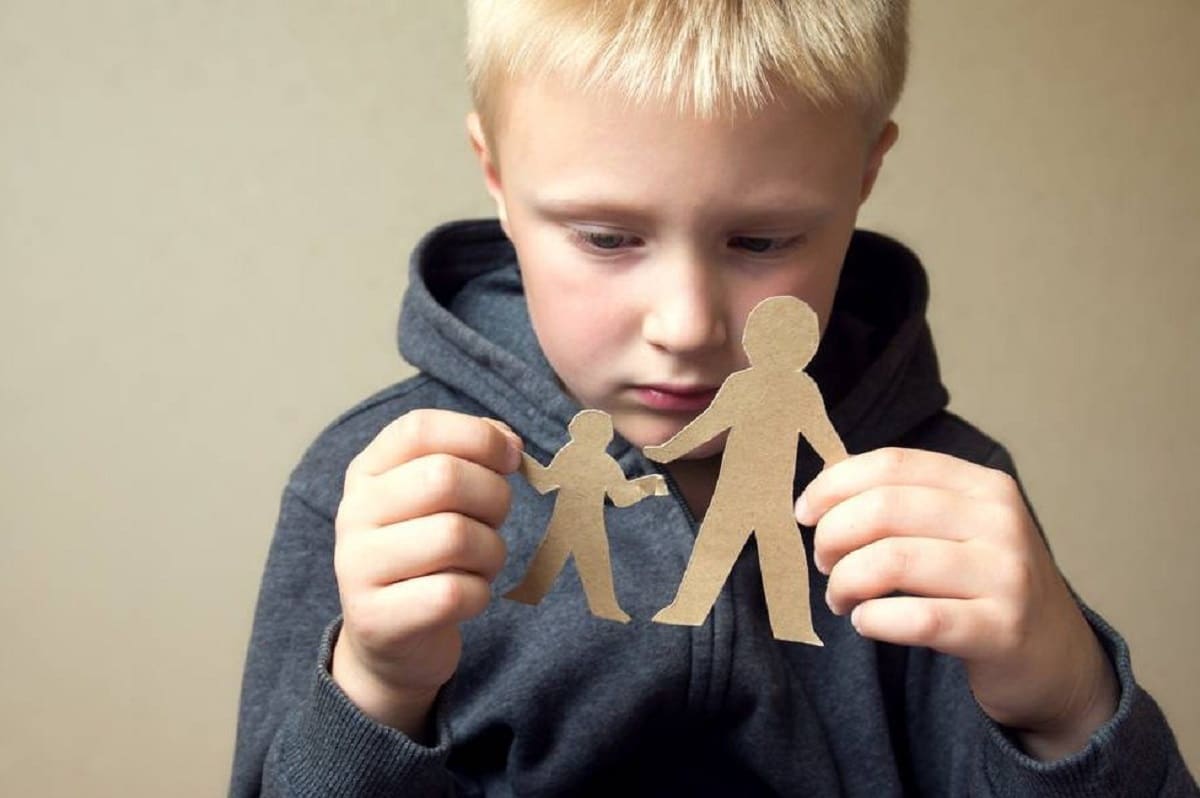
Means parentification when boys and girls, due to various circumstances, act as parents of their parents. They are generally obedient, attentive children, with a high sense of responsibility, but with a partly stolen childhood and with some emotional wounds that can limit their personal development.
The emotional needs of these children are often relegated and they assume responsibilities that do not correspond to them. We show you what are the characteristics of parentified children, the types of parentification, and what signs can occur in these situations.
What is parentification?

Parentification is a term from the psychiatrist Boszormenyi-nagi to refer to a phenomenon common in dysfunctional families, and single parents, but not exclusive to them. It's about a unconscious process whereby children become parents to their parents. Therefore they take on a greater responsibility than they should for their age and maturity. It occurs in both boys and girls.
Today's society admits that children are treated like little adults, which makes it more unconscious, both by mothers and fathers, and by the children themselves. The little ones see their influence on the family increased, this situation involves more adulation than criticism, but, in the long run, it is still a mental trap. In this way, children become the ones in charge of satisfying the physical and / or emotional needs of their parents or some of their siblings.
However, there are authors who think that this role reversal process can also be beneficial in some cases. The child may perceive the situation as a sign of appreciation and gratitude. The fulfillment of responsibilities for the development of skills and abilities by children influences them to become competitive adults. Be that as it may, each stage of life has its development guidelines and characteristics and in the case of parentification these are not respected.
Classification or types of parentification

One of the most common classifications regarding parentification is the one that distinguishes two types:
- Emotional. It occurs when mothers and fathers expect their children to reassure them when they are upset or to protect them from the emotional consequences of their actions. Children become the emotional support for their needs.
- Physical or instrumental. It is one in which children are expected to take charge of domestic or economic needs: preparing food, caring for other siblings or other types of responsibilities that correspond to the parents. This is considered less harmful to children.
The authors Hoolper and Wallace state that the two types of parentification are related to disorders such as depression, anxiety and somatization. They also maintain that adults who were parentalized are more likely to develop imposter syndrome.
Visible signs of parentification

The perversity of parentification is that the type of relationship that is established father-son-daughter, mother-son-daughter, is seen reinforced by the attitude of adults. They often deny the reality of the child and feel that they are doing everything for their own good.
Some signs seen in adults are, for example, that the father discuss and share relationship problems with your children, even more than with other adults. He focuses his life and his self-esteem on his children, he seeks to know how his children feel, and that they do not feel neglected. Father or mother give very special gifts on birthdays or holidays, generating very high expectations in the children. Parents expect their son or daughter to participate in the proposed activities, and if they don't, they feel a strong sense of abandonment
For their part, the children feel a constant sense of guilt and a obligation towards the father or mother despite responding to most of your requests. It is extremely difficult, or impossible, for the child to say no to the parent. Children who were parentified, during their adulthood tend to assume roles of responsibility and caregivers before friends, partner and work.